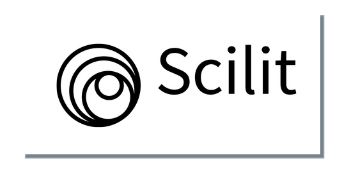The Role of Artemisia in Acne Vulgaris : A Review
DOI:
https://doi.org/10.11594/jk-risk.02.1.4Keywords:
artemisia, mugwort, terapi alternatif, akne vulgarisAbstract
Akne vulgaris merupakan masalah yang sering kali menjadi alasan pasien berobat. Akne vulgaris dapat mengganggu kualitas hidup penderitanya karena dapat menurunkan rasa percaya diri, terutama pada derajat berat. Terapi yang ada saat ini seperti retinoid dan antibiotik sering kali memicu masalah lain seperti iritasi akibat penggunaan retinoid dan resisten akibat penggunaan antibiotik topikal jangka panjang. Saat ini telah banyak dilakukan penelitian untuk mencari terapi alternatif pilihan untuk akne vulgaris, salah satu alternatif yang sedang dikembangkan adalah dengan menggunakan ekstrak dari tanaman Artemisia atau lebih banyak dikenal dengan Mugwort. Tanaman ini banyak digunakan sebagai tanaman obat tradisional karena memiliki berbagai aktivitas, seperti antioksidan, anti bakteri, anti jamur, dan anti parasit. Peran anti bakteri pada ekstrak tanaman Artemisia dapat menghambat pertumbuhan berbagai bakteri seperti Pseudomonas aeruginosa, Staphylococcus aureus, dan Propionibacterium acnes. Penggunaan ekstrak tanaman ini dilaporkan memiliki efek samping yang lebih minimal dibandingkan dengan penggunaan bahan kimia. Pemanfaatan ekstrak tanaman Artemisia pada terapi akne vulgaris dapat dipertimbangkan karena kemampuan anti bakteri yang dimilikinya.
Downloads
References
2. William D, James., Timothy G, Berger., D. and M, Elston., dan Isaac N, N. Andrews’ Diseases of the Skin. Akne vulgarisailable at : https://ebookyhoc.com/sach/andrews-diseases-of-the-skin-clinicaldermatology-12e/. 2016. (Accessed: 15 August 2021)
3. Sibero, H. T., Putra, I. W. A. and Anggraini, D. I. ‘Tatalaksana TerkiniAkne Vulgaris’, JK Unila, 2019;3(2):pp. 313–320
4. Hrytsyk RA, Kutsyk RV, Yurchyshyn OI, Struk OA, Kireev IV, Grytsyk AR. The investigation of antimicrobial and antifungal activity of some Artemisia L. species. Pharmacia. 2021;68(1):93–100
5. Wasitaatmaja, S. M. Ilmu Penyakit Kulit dan Kelamin-Akne. FKUI. Jakarta. 2018
6. Motosko CC, Zakhem GA, Pomeranz MK, Hazen A. Acne: a side-effect of masculinizing hormonal therapy in transgender patients. Br J Dermatol. 2019;180(1):26–30
7. Özçelik S, Kulaç İ, Yazıcı M, Öcal E. Distribution of childhood skin diseases according to age and gender, a single institution experience. Turk Pediatr Ars. 2018;53(2):105–12
8. Teresa A. Akne Vulgaris Dewasa: Etiologi, Patogenesis Dan Tatalaksana Terkini. Jurnal Kedokteran Universitas Palangka Raya. 2020 Jun 30;8(1):952-6
9. Zaenglein AL, Pathy AL, Schlosser BJ, Alikhan A, Baldwin HE, Berson DS, et al. Guidelines of care for the management of acne vulgaris. J Am Acad Dermatol [Internet]. 2016;74(5):945-973.e33. Available from: http://dx.doi.org/10.1016/j.jaad.2015.12.037
10. Nast A, Dréno B, Bettoli V, Degitz K, Erdmann R, Finlay AY, et al. European evidence-based (S3) guidelines for the treatment of acne. J Eur Acad Dermatology Venereol. 2012;26(SUPPL. 1):1–29
11. Kumar B, Pathak R, Mary PB, Jha D, Sardana K, Gautam HK. New insights into acne pathogenesis: Exploring the role of acne-associated microbial populations. Dermatologica Sin [Internet]. 2016;34(2):67–73. Available from: http://dx.doi.org/10.1016/j.dsi.2015.12.004
12. KABAU S. Hubungan Antara Pemakaian Jenis Kosmetik Dengan Kejadian Akne Vulgaris. J Kedokt Diponegoro. 2012;1(1):137774. (Accessed : 16 August 2021)
13. Bora KS, Sharma A. The genus Artemisia: A comprehensive review. Pharm Biol. 2011;49(1):101–9
14. Abad MJ, Bedoya LM, Apaza L, Bermejo P. The Artemisia L. genus: A review of bioactive essential oils. Molecules. 2012;17(3):2542–66
15. Willcox M. Artemisia species: From traditional medicines to modern antimalarials - And back again. J Altern Complement Med. 2009;15(2):101–9
16. Mohamed AEHH, El-Sayed MA, Hegazy ME, Helaly SE, Esmail AM, Mohamed NS. Chemical constituents and biological activities of Artemisia herba-alba. Rec Nat Prod. 2010;4(1):1–25
17. Mohsen H, Ali F. Study of genetic polymorphism of Artemisia herba-alba from Tunisia using ISSR markers. African J Biotechnol. 2008;7(1):044–50
18. Nigam M, Atanassova M, Mishra AP, Pezzani R, Devkota HP, Plygun S, et al. Bioactive compounds and health benefits of Artemisia species. Nat Prod Commun. 2019;14(7)
19. Salehi B, Sharopov F, Martorell M, Rajkovic J, Ademiluyi AO, Sharifi-Rad M, et al. Phytochemicals in Helicobacter pylori infections: What are we doing now? Int J Mol Sci. 2018;19(8)
20. Sharifi-Rad M, Nazaruk J, Polito L, Morais-Braga MFB, Rocha JE, Coutinho HDM, et al. Matricaria genus as a source of antimicrobial agents: From farm to pharmacy and food applications. Microbiol Res. 2018;215(June):76–88
21. Sharifi-Rad J, Sureda A, Tenore GC, Daglia M, Sharifi-Rad M, Valussi M, et al. Biological activities of essential oils: From plant chemoecology to traditional healing systems. Vol. 22, Molecules. 2017
22. Lopes-Lutz D, Alviano DS, Alviano CS, Kolodziejczyk PP. Screening of chemical composition, antimicrobial and antioxidant activities of Artemisia essential oils. Phytochemistry. 2008;69(8):1732–8
23. Ho WE, Peh HY, Chan TK, Wong WSF. Artemisinins: Pharmacological actions beyond anti-malarial. Pharmacol Ther [Internet]. 2014;142(1):126–39. Available from: http://dx.doi.org/10.1016/j.pharmthera.2013.12.001
24. Trombetta D, Castelli F, Sarpietro MG, Venuti V, Cristani M, Daniele C, et al. Mechanisms of antibacterial action of three monoterpenes. Antimicrob Agents Chemother. 2005;49(6):2474–8
25. Kan T, Lili G, Jose F, Corey W, Junfeng L, Xincheng H, et al. Artemisia Naphta: A novel oil extract for sensitive and acne prone skin. Ann Dermatological Res. 2021;5(1):022–9
26. Yarnell E, Abascal K. Herbal medicine for acne vulgaris. Altern Complement Ther. 2006;12(6):303–9
27. Park H, Woo S, Hyun J, Kim H, You J, Woo H, et al. Effect and Tolerability of the Combined Plant Extract (PAC) in Treatment of Acne Vulgaris. J Cosmet Dermatological Sci Appl. 2018;08(02):55–72
Downloads
Published
Issue
Section
License
Authors who publish with this journal agree to the following terms:
- Authors retain copyright and grant the journal the right of first publication with the work simultaneously licensed under a Creative Commons Attribution License that allows others to share the work with an acknowledgement of the work's authorship and initial publication in this journal.
- Authors can enter into separate, additional contractual arrangements for the non-exclusive distribution of the journal's published version of the work (e.g., post it to an institutional repository or publish it in a book), with an acknowledgement of its initial publication in this journal.
- Authors are permitted and encouraged to post their work online (e.g., in institutional repositories or on their website) before and during the submission process, as it can lead to productive exchanges and earlier and greater citation of published work (See The Effect of Open Access).
















